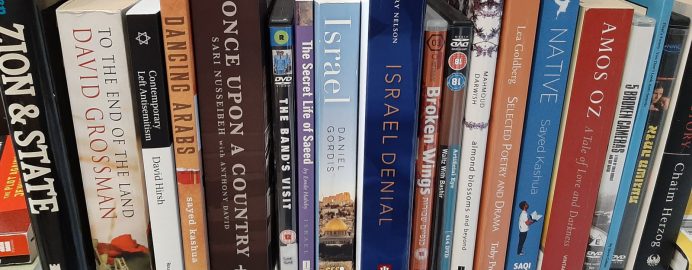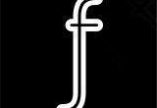1. Philip Mendes recommends Benny Morris’s The Birth of the Palestinian Refugee Problem 1947-1949
Like many Jews growing up in the 1970s, I was taught that the Palestinian refugees voluntarily left Israel during the 1947-48 war at the behest of the Arab leaders. Yet as a left-leaning first year university student in 1982, I concluded from a survey of pro-Palestinian literature that this explanation was almost certainly a myth. But it was not until the appearance of Benny Morris’s seminal work the Birth of the Palestinian Refugee Problem in 1987 that I felt I finally had a credible and detailed explanation of the exodus. This book was the archetypal ‘smoking gun’, and I was very excited when my bound copy arrived in the mail – probably one of less than a dozen in Australia at that time.
Morris exposed both the official Israeli and official Palestinian versions of the refugee exodus as propaganda. According to him, ‘the Palestinian refugee problem was born of war, not by design, Jewish or Arab’. He attributed the exodus to a number of factors, including the bitter fighting that characterised the first Israeli-Arab war; the structural weaknesses of Palestinian Arab society and the voluntary departure of many upper and middle class families; Arab fears of Jewish atrocities; and Jewish fears of the potential consequences of an Arab victory. Morris found no evidence of any blanket Arab orders to the Palestinians to flee the country; nor did he find any evidence of an Israeli master plan to expel the Arab population.
The political implications I drew from Morris’s thesis were those of pragmatism. Israel should symbolically acknowledge that their military activities contributed at least in part of the creation of the refugee tragedy, and pay compensation to those refugees who chose not to resettle in a Palestinian state. But equally, the
Palestinians and the Arab world should acknowledge that the exodus was a direct byproduct of the war they launched in an attempt to destroy the newly created Jewish state.
Philip Mendes is an Associate Professor in the Department of Social Work, Faculty of Medicine at Monash University. His book Jews and the Left: The Rise and Fall of a Political Alliance, is published by Palgrave Macmillan.
*
2. Keith Kahn-Harris recommends the Israel comedy series HaYehudim Ba’im (’The Jews are coming’)
For many years during which it has been increasingly difficult to me to identify politically with Israel, humour and irony seem to me the country’s saving grace and its canary in the coalmine. The ability to laugh at oneself and others, to mock and deride, is essential to the health of any society that aspires to be democratic. So watching the Israeli comedy series HaYehudim Ba’im (’The Jews are coming’) is like balm to my liberal-left soul. A sketch show that started airing in 2014, it reenacts key moments in Jewish and Israeli history. Most of the episodes can be found online, some of them with English subtitles (and those that don’t have many sketches that are understandable with just a modicum of Hebrew). Created by the publicly-funded Channel 1, the show has sometimes been controversial, and its launch was delayed for a year following a storm of criticism after a sketch about the ten commandments was leaked. While some of the segments are a bit laboured, the show certainly doesn’t lack courage: Yigal Amir, Baruch Goldstein, Adolf Eichmann and Adolf Hitler all make appearances. For me though, my favourite is a sketch in which a group of Nazis after the war plan ‘Final Solution 2.0’ by plotting to ensure that Israel receives zero points in the Eurovision song contest. Enjoy.
Keith Kahn-Harris is a senior lecturer at Leo Baeck College, a fellow at the Institute for Jewish Policy research, the editor of the Jewish Quarterly and the Jewish Journal of Sociology. His latest book is Strange Hate: Antisemitism, Racism and the Limits of Diversity (2019).
*
3. Hamutal Gouri recommends ‘The Branch’ Podcast
During this COVID-19 pandemic we will all need stories that celebrate and elevate our humanity and help us hold on to hope. We need stories that invite us to pause and ponder, and then act; now, and when this crisis is over. In that spirit, I want to recommend a podcast ‘The Branch: Real Stories about Building Connections Between Arabs and Jews’. It is produced and edited by journalist Dina Kraft and sponsored by Hadassah. Each episode sheds light on the joint efforts of Jewish and Arab leaders and activists to foster a truly shared society. Full disclosure: Episode 7 features Samah Salaime and myself talking about sisterhood for change: https://www.hadassah.org/multi-media/podcasts/branch-episodes/episode-7-sisterhood.html You can find all episodes on The Branch webpage: https://www.hadassah.org/multi-media/podcasts/the-branch-podcast.html
And I have one more suggestion. Just Vision have made all their documentary films available for free online viewing. The films tell stories of non-violent Palestinian resistance to the occupation. I recommend two films by director Julia Bacha: Budrus (2009), and Naila and the Uprising (2019): https://www.justvision.org/
Hamutal Gouri is the former executive director of the Dafna Fund and philanthropic advisor. She is the author of ‘Minding the gaps, connecting the dots: Seven steps towards a feminist funding eco-system in Israel’ (2018).
*
4. Mitchell Cohen recommends Jonathan Frankel’s Prophecy and Politics: Socialism, Nationalism and the Russian Jews, 1862-1917
Although published almost four decades ago, it remains one of the truly great works on the emergence of modern Jewish politics, from Moses Hess to the pogroms of 1881, from the Bund and the Second Aliyah to the Bolshevik Revolution. Frankel taught at Hebrew University and I was privileged to read it for the first time when it was still in manuscript. It is based on profound scholarship and deep historical knowledge, without jargon – and without jargonised thinking. He argues that there was a ‘new Jewish politics’ after 1881. I fear that the achievements of that politics is now threatened, both because of the Netanyahu era in Israel and the weaknesses of Jewish leadership, political and intellectual, in the diaspora. These have, in my view, created today a crisis in Jewish political culture.
A second recommendation: read the late Bernard Lewis’s essay ‘The Question of Orientalism.’ It was his major statement in the debates about Edward Said and appeared originally in the New York Review of Books in June 1982. It can be found in his volume Islam and the West (where you will find other important essays in that book worth reading). Lewis’s name is toxic in some circles, often among critics who haven’t read him or who understand ‘orientalism’ mainly through reading Said. Lewis was an extraordinarily learned man, and while I have often disagreed, at times deeply, with views he expressed, I have almost always profited by reading him. Also, try his The Muslim Discovery of Europe. If you want to ponder the existential situation of Jews at a moment of crisis, try Job’s Dungheap by Bernard Lazare (1865-1903). This hero of the Dreyfus affair was a Sephardi Zionist anarchist. The English translation, which has a preface by Hannah Arendt, may be hard to come by, and has its problems. If you read French go to the original, Le fumier de Job.
Mitchell Cohen teaches political science at Bernard Baruch College and the Graduate School of the City University of New York. He is the author of The Politics of Opera: A History from Monteverdi to Mozart (2017).
*
5. Andrei Markovits recommends Mitchell Cohen’s Zion and State: Nation, Class and the Shaping of Modern Israel
Full disclosure: Mitchell Cohen is one of my dearest friends and a colleague from our days as doctoral students in Columbia University’s Department of Political Science. So I am perhaps far from objective in my assessment of this book. But for me, it was – and still remains – an eye opener by dint of its erudition about the conflicted history between left-wing and right-wing Zionists in the Diaspora and their continued battles in Palestine that shaped Israel’s politics in the country’s first three decades. I learned so much about the battles between David Ben-Gurion and his nemesis Ze’ev Jabotinsky. Indeed, Cohen’s learned treatise has continued to help me understand aspects of contemporary politics in Israel, none more so than Bibi Netanyahu’s positions and those of the nationalist right.
Andrei S. Markovits is currently an Arthur F. Thurnau Professor and the Karl W. Deutsch Collegiate Professor of Comparative Politics and German Studies at the University of Michigan, Ann Arbor. His Gaming The World: How Sports Are Reshaping Global Politics and Culture is published by Princeton University Press.


































Comments are closed.